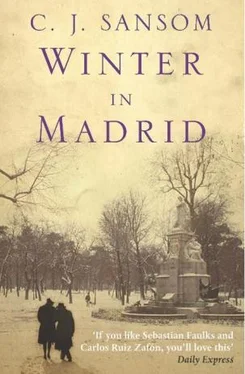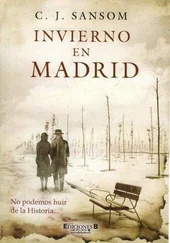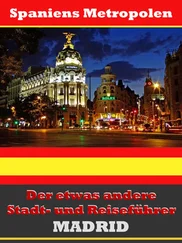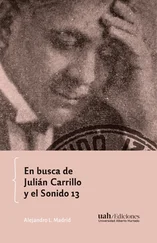THE JOURNEY TO Will’s house normally lasted under an hour, but today it took half the afternoon, the tube continually stopping and starting. In the underground stations little knots of people sat on the platforms, huddled together, whey-faced. Harry had heard some of the bombed-out east-enders had taken up residence in the tubes.
He thought of spying on Sandy Forsyth and a sick, incredulous feeling lurched through him. He scanned the pale tired faces of his fellow passengers. He supposed any one of them might be a spy – what could you tell from people’s looks? The photo kept coming back to his mind: Sandy’s confident smile, the Clark Gable moustache. The train lurched slowly on through the tunnels.
IT HAD BEEN Rookwood that gave Harry his identity. His father, a barrister, had been blown to pieces on the Somme when Harry was six years old, and his mother had died in the influenza epidemic the winter the First War – as people were starting to call the last war – ended. Harry still had their wedding photograph and often looked at it. His father, standing outside the church in a morning suit, looked very like him: dark and solid and dependable-looking. His arm was round Harry’s mother, who was fair like Cousin Will, curly tresses falling round her shoulders under a wide-brimmed Edwardian hat. They were smiling happily into the camera. The picture had been taken in bright sunlight and was slightly overexposed, making haloes of light around their figures. Harry had little memory of them; like the world of the photograph they were a vanished dream.
After his mother died, Harry had gone to live with Uncle James, his father’s elder brother, a professional army officer wounded in the first battles of 1914. It had been a stomach wound, nothing you could see, but Uncle James’s innards troubled him constantly. His discomfort worsened an already peppery disposition and was a constant source of worry to Aunt Emily, his nervous, anxious wife. When Harry came to their house in the pretty Surrey village they were only in their forties, but they seemed much older already, like a pair of anxious, fussy pensioners.
They were kind to him, but Harry had always felt unwanted. They were childless and never seemed quite to know what to do with him. Uncle James would clap him on the shoulder, almost knocking him over, and ask heartily what he was playing at today, while his aunt worried endlessly about what he should eat.
Occasionally he went to stay with Aunt Jenny, his mother’s sister and Will’s mother. She had been devoted to his mother and found it difficult to be reminded of her, although she showered him, guiltily perhaps, with food parcels and postal orders when he went to school.
As a child Harry had been taught by a tutor, a retired teacher his uncle knew. He spent much of his free time roaming the lanes and woods around the village. There he met the local boys, sons of farmers and farriers, but though he played cowboys and Indians and hunted rabbits with them he was always apart: Harry the Toff. ‘Say “awful”, Harry,’ they would goad him. ‘ Or -ful, or -ful.’
One summer day when Harry came home from the fields, Uncle James called him into his study. He was just twelve. There was another man there, standing by the window, the sun directly behind him so that at first he was just a tall shadow framed by dust motes. ‘I’d like you to meet Mr Taylor,’ Uncle James said. ‘He teaches at my old school. My alma mater . That’s the Latin right, eh?’ And to Harry’s surprise he laughed nervously, like a child.
The man moved forward and took Harry’s hand in a firm grip. He was tall and thin and wore a dark suit. Black hair receded from a widow’s peak on his high forehead and keen grey eyes studied him from behind a pair of pince-nez.
‘How do you do, Harry.’ The voice was sharp. ‘You’re a bit of a ragamuffin, aren’t you?’
‘He’s been running a little wild,’ Uncle James said apologetically.
‘We’ll soon tidy you up if you come to Rookwood. Would you like to go to Public School, Harry?’
‘I don’t know, sir.’
‘Your tutor’s report is good. Do you like rugger?’
‘I’ve never played, sir. I play football with the boys in the village.’
‘Rugger’s much better. A gentleman’s game.’
‘Rookwood was your father’s old school as well as mine,’ Uncle James said.
Harry looked up. ‘Father’s?’
‘Yes. Your pater , as they say at Rookwood.’
‘Do you know what pater means, Harry?’ Mr Taylor asked.
‘It’s Latin for father, sir.’
‘Very good.’ Mr Taylor smiled. ‘The boy might just do, Brett.’
He asked more questions. He was friendly enough but had an air of authority, of expecting obedience, which made Harry cautious. After a while he was sent from the room while Mr Taylor talked with his uncle. When Uncle James called him back Mr Taylor had gone. His uncle asked him to sit down and looked at him seriously, stroking his greying moustache.
‘Your aunt and I think it’s time you went away to school, Harry. Better than staying here with a couple of old fogeys like us. And you should be mixing with boys from your own class, not the village lads.’
Harry had no idea what a Public School was like. Into his head came a picture of a big building full of light, bright like the light in his parents’ photograph, welcoming him.
‘What do you think, Harry, would you like to go?’
‘Yes, Uncle. Yes, I would.’
WILL LIVED IN a quiet street of mock-Tudor villas. A new air-raid shelter, a long low concrete building, stood incongruously by the grass verge.
His cousin was home already and answered the doorbell. He had changed into a brightly patterned jumper and beamed at Harry through his glasses.
‘Hello, Harry! Made it all right, then?’
‘Fine, thanks.’ Harry clasped his hand. ‘How are you, Will?’
‘Oh, bearing up, like everyone. How are the old ears?’
‘Just about back to normal. A bit deaf on one side.’
Will led Harry into the hall. A tall, thin woman with mousy hair and a long disapproving face came out of the kitchen, drying her hands on a tea towel.
‘Muriel.’ Harry made himself smile warmly. ‘How are you?’
‘Oh, struggling on. I won’t shake hands, I’ve been cooking. I thought we might skip high tea, go straight on to dinner.’
‘We’ve got a nice steak for dinner, though. Got an arrangement with the butcher. Now, come on up, you’ll want a wash.’
Harry had stayed in the back bedroom before. There was a big double bed and little ornaments on doilies on the dressing table. ‘I’ll leave you to it,’ Will said. ‘Have a wash, then come down.’
Harry washed his face at the little sink, studying it in the mirror as he dried himself. He was putting on weight, his stocky frame starting to become fat through recent lack of exercise, the square jaw rounding out. People told him it was an attractive face, though he always thought the regular features under his curly brown hair a little too broad to be handsome. There were new lines around the eyes these days. He tried to make his face as expressionless as he could. Would Sandy be able to read his thoughts behind such a mask? It had been the done thing at school to hide your feelings – you showed them only through a set mouth, a raised eyebrow. People looked for little signs. Now he must learn to show nothing, or untrue things. He lay on the bed, remembering school and Sandy Forsyth.
HARRY HAD LOVED the school from the start. Set in an eighteenth-century mansion deep in the Sussex countryside, Rookwood had originally been founded by a group of London businessmen trading overseas to educate the sons of their ships’ officers. The House names reflected its naval past: Raleigh and Drake and Hawkins. Now the sons of civil servants and minor aristocrats went there, with a leavening of scholarship boys funded by bequests.
Читать дальше












